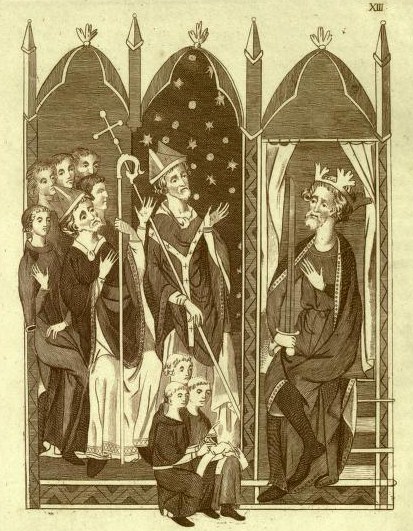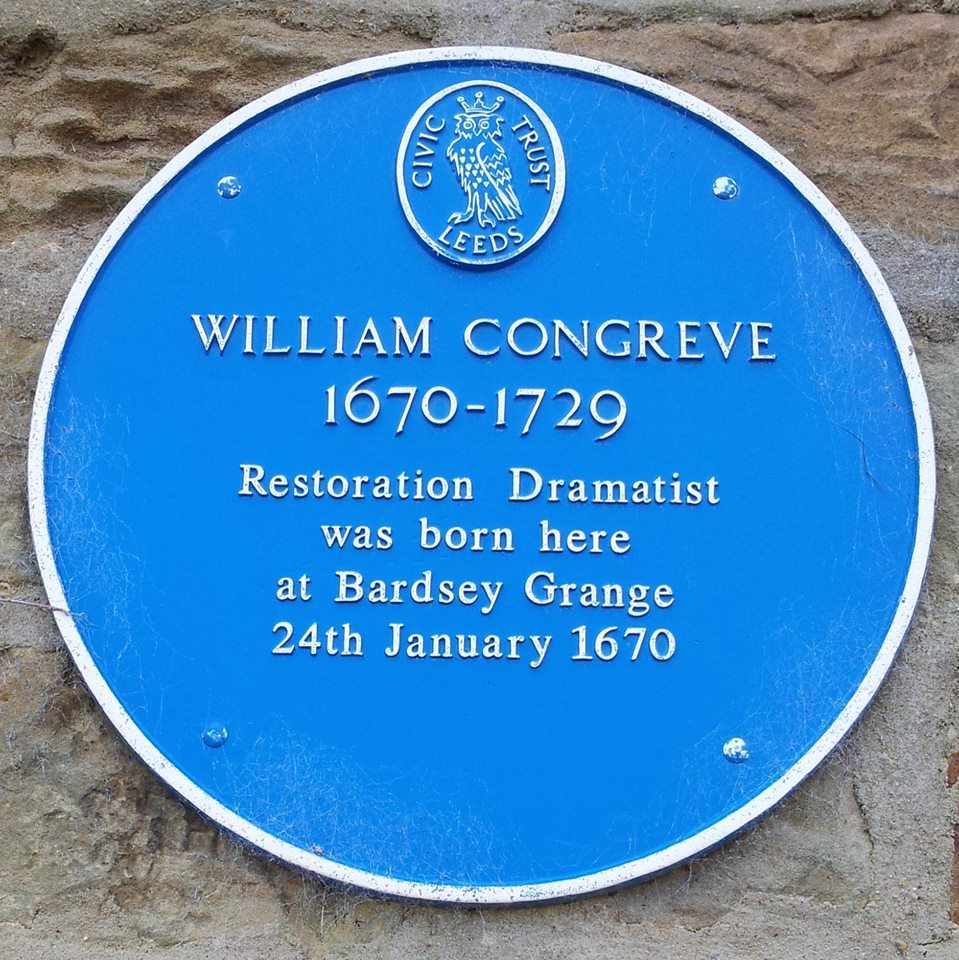|
Crambo
Crambo is a rhyming game which, according to Joseph Strutt, was played as early as the 14th century under the name of the ABC of Aristotle. It is also known as capping the rhyme. The name may also be used to describe a doggerel poem which exhausts the possible rhymes with a particular word. In the days of the Stuarts it was very popular, and is frequently mentioned in the writings of the time. Thus William Congreve's 1695 play ''Love for Love'', i. 1, contains the passage,"Get the Maids to Crambo in an Evening, and learn the knack of Rhyming." Etymology The name comes from the Latin ''crambe'' and Greek κράμβη ''krámbē'', meaning "cabbage" (as in ''crambe repetita'' (Juvenal, satire 7, 154), literally meaning "re-stewed cabbage"). Hence the players started with a rhyme and then "re-stewed" it.Crambo at Merriam-Webster Dictionary ... [...More Info...] [...Related Items...] OR: [Wikipedia] [Google] [Baidu] |
Doggerel
Doggerel, or doggrel, is poetry that is irregular in rhythm and in rhyme, often deliberately for burlesque or comic effect. Alternatively, it can mean verse which has a monotonous rhythm, easy rhyme, and cheap or trivial meaning. The word is derived from the Middle English ''dogerel'', probably a derivative of ''dog''. In English, it has been used as an adjective since the 14th century and a noun since at least 1630. Appearing since ancient times in the literatures of many cultures, doggerel is characteristic of nursery rhymes and children's song. Examples The Scottish poet William McGonagall (1825–1902) has become famous for his doggerel, which many remember with affection despite its seeming technical flaws, as in his poem " The Tay Bridge Disaster": Hip hop lyrics have also explored the artful possibilities of doggerel. . Chaucer's Tale of Sir Thopas is written in this format. It irritates the Host of The Tabard so much that he interrupts him and makes him tell a di ... [...More Info...] [...Related Items...] OR: [Wikipedia] [Google] [Baidu] |
Game
A game is a structured type of play usually undertaken for entertainment or fun, and sometimes used as an educational tool. Many games are also considered to be work (such as professional players of spectator sports or video games) or art (such as games involving an artistic layout such as mahjong, solitaire, or some video games). Games have a wide range of occasions, reflecting both the generality of its concept and the variety of its play. Games are sometimes played purely for enjoyment, sometimes for achievement or reward as well. They can be played alone, in teams, or online; by amateurs or by professionals. The players may have an audience of non-players, such as when people are entertained by watching a chess championship. On the other hand, players in a game may constitute their own audience as they take their turn to play. Often, part of the entertainment for children playing a game is deciding who is part of their audience and who participates as a player. A ... [...More Info...] [...Related Items...] OR: [Wikipedia] [Google] [Baidu] |
Joseph Strutt (engraver And Antiquary)
Joseph Strutt (27 October 1749 – 16 October 1802) was an English engraver, artist, antiquary, and writer. He is today most significant as the earliest and "most important single figure in the investigation of the costume of the past", making him "an influential but totally neglected figure in the history of art in Britain", according to Sir Roy Strong. Life and work Childhood Strutt was born at Springfield Mill in Chelmsford, Essex, the youngest son of Thomas Strutt and his wife Elizabeth (daughter of John Ingold, miller, of Woodham Walter, near Maldon, Essex) – the mill belonged to his father, a wealthy miller. When he was little more than a year old, his father died, leaving his mother to bring up him and his brother John – the latter, a year or two older, went on to become a physician in Westminster, London. Strutt was educated at King Edward VI Grammar school, Chelmsford (where there is a house named after him), and at the age of fourteen was apprenticed to the e ... [...More Info...] [...Related Items...] OR: [Wikipedia] [Google] [Baidu] |
Stuarts
The House of Stuart, originally spelled Stewart, also known as the Stuart dynasty, was a royal house of Scotland, England, Ireland and later Great Britain. The family name comes from the office of High Steward of Scotland, which had been held by the family progenitor Walter fitz Alan (). The name Stewart and variations had become established as a family name by the time of his grandson Walter Stewart. The first monarch of the Stewart line was Robert II, whose male-line descendants were kings and queens in Scotland from 1371, and of England, Ireland and Great Britain from 1603, until 1714. Mary, Queen of Scots (r. 1542–1567), was brought up in France where she adopted the French spelling of the name Stuart. In 1503, James IV married Margaret Tudor, thus linking the reigning royal houses of Scotland and England. Margaret's niece, Elizabeth I of England died without issue in 1603, and James IV's and Margaret's great-grandson James VI of Scotland acceded to the thrones of ... [...More Info...] [...Related Items...] OR: [Wikipedia] [Google] [Baidu] |
William Congreve (playwright)
William Congreve (24 January 1670 – 19 January 1729) was an English playwright, satirist, poet, and Whigs (British political party), Whig politician. He spent most of his career between London and Dublin, and was noted for his highly polished style of writing, being regarded by critics as one of the most important dramatists of the early Georgian era. He wrote some of the most popular poems of the 17th century, and is credited with developing the satirical comedy of manners genre. His plays and poems, which formed a major part of Restoration literature, were favorably viewed for their use of satire and comedy. Congreve is remembered for his play ''The Way of the World'' (1700), which is considered by literary commentators to be one of the centerpieces of Restoration comedy literature. Congreve also wrote several other notable plays, including ''The Old Bachelor'' (1693), ''The Double Dealer'' (1693), ''Love for Love'' (1695), and ''The Mourning Bride'' (1697), all of which he ... [...More Info...] [...Related Items...] OR: [Wikipedia] [Google] [Baidu] |
Latin
Latin ( or ) is a classical language belonging to the Italic languages, Italic branch of the Indo-European languages. Latin was originally spoken by the Latins (Italic tribe), Latins in Latium (now known as Lazio), the lower Tiber area around Rome, Italy. Through the expansion of the Roman Republic, it became the dominant language in the Italian Peninsula and subsequently throughout the Roman Empire. It has greatly influenced many languages, Latin influence in English, including English, having contributed List of Latin words with English derivatives, many words to the English lexicon, particularly after the Christianity in Anglo-Saxon England, Christianization of the Anglo-Saxons and the Norman Conquest. Latin Root (linguistics), roots appear frequently in the technical vocabulary used by fields such as theology, List of Latin and Greek words commonly used in systematic names, the sciences, List of medical roots, suffixes and prefixes, medicine, and List of Latin legal terms ... [...More Info...] [...Related Items...] OR: [Wikipedia] [Google] [Baidu] |
Greek Language
Greek (, ; , ) is an Indo-European languages, Indo-European language, constituting an independent Hellenic languages, Hellenic branch within the Indo-European language family. It is native to Greece, Cyprus, Italy (in Calabria and Salento), southern Albania, and other regions of the Balkans, Caucasus, the Black Sea coast, Asia Minor, and the Eastern Mediterranean. It has the list of languages by first written accounts, longest documented history of any Indo-European language, spanning at least 3,400 years of written records. Its writing system is the Greek alphabet, which has been used for approximately 2,800 years; previously, Greek was recorded in writing systems such as Linear B and the Cypriot syllabary. The Greek language holds a very important place in the history of the Western world. Beginning with the epics of Homer, ancient Greek literature includes many works of lasting importance in the European canon. Greek is also the language in which many of the foundational texts ... [...More Info...] [...Related Items...] OR: [Wikipedia] [Google] [Baidu] |
Cabbage
Cabbage, comprising several cultivars of '' Brassica oleracea'', is a leafy green, red (purple), or white (pale green) biennial plant grown as an annual vegetable crop for its dense-leaved heads. It is descended from the wild cabbage ( ''B. oleracea'' var. ''oleracea''), and belongs to the " cole crops" or brassicas, meaning it is closely related to broccoli and cauliflower (var. ''botrytis''); Brussels sprouts (var. ''gemmifera''); and Savoy cabbage (var. ''sabauda''). A cabbage generally weighs between . Smooth-leafed, firm-headed green cabbages are the most common, with smooth-leafed purple cabbages and crinkle-leafed savoy cabbages of both colours being rarer. Under conditions of long sunny days, such as those found at high northern latitudes in summer, cabbages can grow quite large. , the heaviest cabbage was . Cabbage heads are generally picked during the first year of the plant's life cycle, but plants intended for seed are allowed to grow a second year and m ... [...More Info...] [...Related Items...] OR: [Wikipedia] [Google] [Baidu] |
Charades
Charades (, ). is a parlor game, parlor or party game, party word game, word guessing game. Originally, the game was a dramatic form of literary charades: a single person would act out each syllable of a word or phrase in order, followed by the whole phrase together, while the rest of the group guessed. A variant was to have teams who acted scenes out together while the others guessed. Today, it is common to require the actors to mime their hints without using any spoken words, which requires some conventional gestures. Puns and visual puns were and remain common. History Literary charades A charade was a form of literary riddle popularized in France in the 18th century where each syllable of the answer was described enigmatically as a separate word before the word as a whole was similarly described. The term ''charade'' was borrowed into English from French in the second half of the eighteenth century, denoting a "kind of riddle in which each syllable of a word, or a complete w ... [...More Info...] [...Related Items...] OR: [Wikipedia] [Google] [Baidu] |
Robert Burns
Robert Burns (25 January 1759 – 21 July 1796), also known familiarly as Rabbie Burns, was a Scottish poet and lyricist. He is widely regarded as the List of national poets, national poet of Scotland and is celebrated worldwide. He is the best known of the poets who have written in the Scots language, although much of his writing is in a "light Central Scots, Scots dialect" of English, accessible to an audience beyond Scotland. He also wrote in standard English, and in these writings his political or civil commentary is often at its bluntest. He is regarded as a pioneer of the Romanticism, Romantic movement, and after his death he became a great source of inspiration to the founders of both liberalism and socialism, and a cultural icon in Scotland and among the Scottish diaspora around the world. Celebration of his life and work became almost a national charismatic cult during the 19th and 20th centuries, and his influence has long been strong on Scottish literature. In 2009 ... [...More Info...] [...Related Items...] OR: [Wikipedia] [Google] [Baidu] |
James Boswell
James Boswell, 9th Laird of Auchinleck (; 29 October 1740 ( N.S.) – 19 May 1795), was a Scottish biographer, diarist, and lawyer, born in Edinburgh. He is best known for his biography of the English writer Samuel Johnson, '' Life of Samuel Johnson,'' which is commonly said to be the greatest biography written in the English language. A great mass of Boswell's diaries, letters, and private papers were recovered from the 1920s to the 1950s, and their publication by Yale University has transformed his reputation. Early life Boswell was born in Blair's Land on the east side of Parliament Close behind St Giles' Cathedral in Edinburgh on 29 October 1740 ( N.S.). He was the eldest son of a judge, Alexander Boswell, Lord Auchinleck, and his wife Euphemia Erskine. As the eldest son, he was heir to his family's estate of Auchinleck in Ayrshire. Boswell's mother was a strict Calvinist, and he felt that his father was cold to him. As a child, he was delicate. Kay Jamison, Profes ... [...More Info...] [...Related Items...] OR: [Wikipedia] [Google] [Baidu] |
Rhyme Scheme
A rhyme scheme is the pattern of rhymes at the end of each line of a poem or song. It is usually referred to by using letters to indicate which lines rhyme; lines designated with the same letter all rhyme with each other. An example of the ABAB rhyming scheme, from "To Anthea, who may Command him Anything", by Robert Herrick: Function in writing These rhyme patterns have various effects, and can be used to: * Control flow: If every line has the same rhyme (AAAA), the stanza will read as having a very quick flow, whereas a rhyme scheme like ABCABC can be felt to unfold more slowly. * Structure a poem's message and thought patterns: For example, a simple couplet with a rhyme scheme of AABB lends itself to simpler direct ideas, because the resolution comes in the very next line. Essentially these couplets can be thought of as self-contained statements. This idea of rhyme schemes reflecting thought processes is often discussed particularly regarding sonnets. * Determine whether ... [...More Info...] [...Related Items...] OR: [Wikipedia] [Google] [Baidu] |







